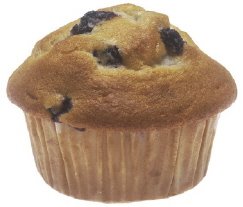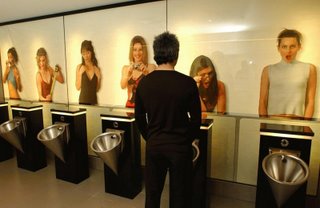1)
“NOT MY CUP OF TEA”: Who talks about tea in casual banter? A girl I dated, sadly. It was a woman I went out with for a short time when I was 23. It was a woman who would obsessively watch “Oprah,” take Dr. Phil's advice seriously (and later bring it up in casual conversation), and always say shit like, “T.G.I. Friday's is not my cup of tea.” I mean, why can’t you just say, “I hate T.G.I. Friday's” or “T.G.I. Friday's? Fuck that!”
The days of people sitting around sampling tea are over. Besides, I always thought the phrase was a case of mistaken identity. As in, "Hey, man, is that yours?" ... "No, that's not my cup of tea."
2) "EVERYTHING HAPPENS FOR A REASON": This cliché is often used by religious zealots and women who are fundamentally weak. I dislike it because it has an stunning double standard.
Consider this example. A girl is dumped by her boyfriend and her heart is broken. However, this girl meets someone even more spectacular months later and becomes happily married. She may reflect on her fortune and say, “everything happens for a reason.”
Instead of meeting the perfect guy, however, what if she had gone out to the club, had sex with a man, and contracted herpes? Would she then say, “My boyfriend dumped me and then I got herpes. Well, everything happens for a reason”?
No, she wouldn’t.
That’s my point. If
everything happens for a reason,
everything happens for a reason. Not just the good stuff. You have to use it both ways. And, by the way, there’s an extremely high probability that everything that happens to you in your life is completely random with no reason behind it.

3)
“NO LOVE LOST”: This is exclusively a sports cliché. But it still makes no sense to me. It’s used when two competitors hate each other.
“There is no love lost between Shaq and Kobe,” Brent Musburger might say.
Well, let’s think about what this means. No love lost. If these guys haven't lost any love, I would presume a bunch of love remains.
Since they hate each other, then there’s
lots of love lost. They should say, “There’s
lots of love lost between Kobe and Shaq.”
4)
“COMPARING APPLES AND ORANGES”: This is the oddest expression in the history of language. Apples and oranges are almost identical. Both are fruit. Both are round, or cylindrical in shape. Both have the same consistency. So why would anyone say, "That's like comparing apples and oranges?"
Why not say, "That's like comparing apples and Jason Preistly's hair during the first season of 90210." Or "That's like comparing apples and llamas." Or, "That's like comparing apples and Harriet's Method of Solving Cubics." Even a bannana.

5)
“HAVE MY CAKE AND EAT IT, TOO”: How many times in your life have you had possession of a cake - or piece of cake - and been unable to eat it? This has never happened to me. I can honestly say every time I have handled cake, I have eaten it, too. Therefore, I can’t relate to someone who has cake but is having trouble consuming it.
Anyway, let's assume someone is in a good relationship but having bad sex. They would say, “I want to have my cake and eat it, too.” However, everyone at the table would prefer you just said, “Dude, I’m not getting any (insert preferred genitalia here).” Or even, "I'm so happy, my only wish is that Gary learned how to go down on me properly." That’s direct language.
It's still a phrase said mostly by greedy, well-off smugs (Editor's Note: Smugs may not really be a word). I don't think you'll ever hear the 32.9 million Americans who live in poverty saying this.
There is actually a book entitled, “Have Your Cake And Eat It Too - How to build a profitable business, make a mountain of cash and turn it over to your employees,” by Glenn Ribble. Let's suppose the money-grubbing peasants who read this kind of literature finally end up eating their cake. Would that be "the icing on the cake"?










